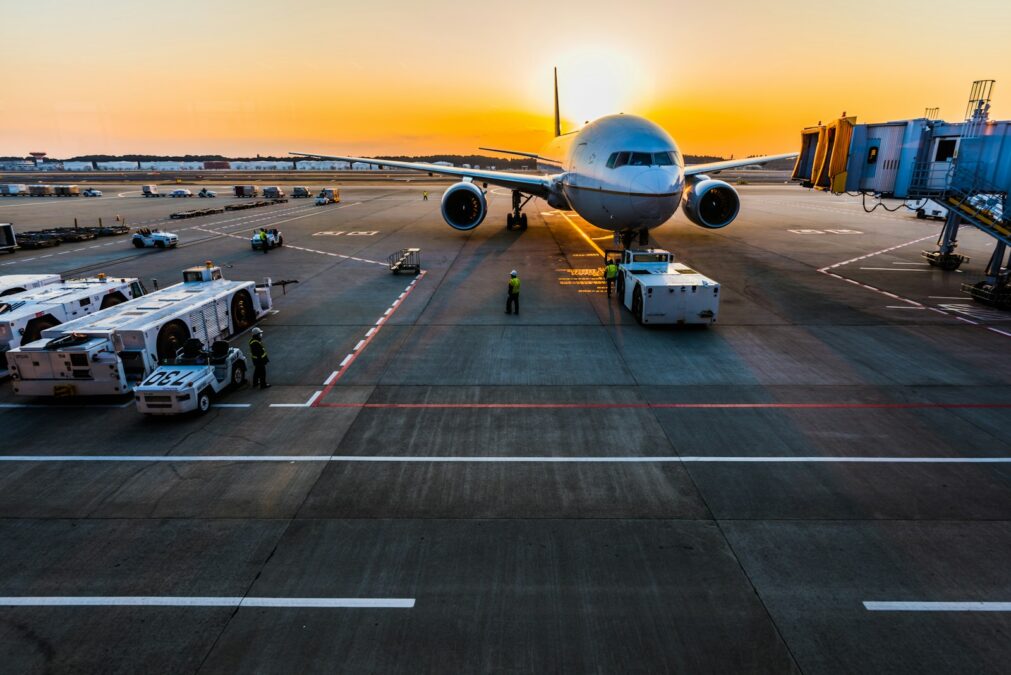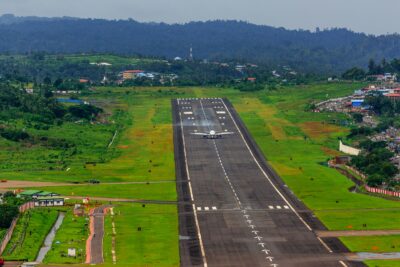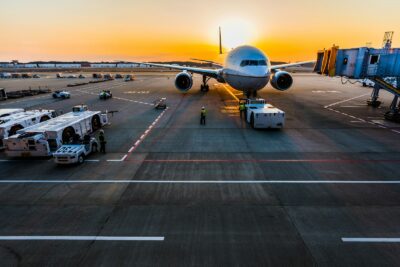Revolutionizing Air Travel with Cutting-Edge Innovations
Automation: Streamlining Airport Operations
Smart airport technology is set to revolutionize air travel by automating various airport operations. This includes everything from check-in and baggage handling to security screening and boarding. Self-service kiosks and biometric identification systems are becoming increasingly common, reducing queues and waiting times for passengers. Robotic baggage handling systems can efficiently sort and transport luggage, minimizing the risk of lost or mishandled bags. Automated security checkpoints, equipped with advanced scanning technologies, can expedite the screening process while maintaining high levels of security.
Connectivity: Enhancing the Passenger Experience
Connected airports are leveraging the power of the Internet of Things (IoT) to create a more seamless and personalized travel experience. Passengers can access real-time flight information, navigate the airport using interactive maps, and receive personalized notifications and recommendations on their mobile devices. Smart sensors and beacons can track passenger flow and optimize resource allocation, ensuring efficient operations and reducing congestion. Additionally, high-speed Wi-Fi networks and charging stations throughout the airport enable passengers to stay connected and productive during their journey.
Personalization: Tailoring Services to Individual Needs
The future of smart airport technology lies in personalization, tailoring services to the individual needs and preferences of each passenger. This can be achieved through data analytics and artificial intelligence, which can analyze passenger data to offer personalized recommendations for shopping, dining, and entertainment options. For example, a passenger who frequently travels for business may receive notifications about available meeting rooms or workspaces, while a leisure traveler may be offered discounts on local attractions or experiences. By understanding passenger preferences and behavior, airports can create a more enjoyable and engaging travel experience.
Transforming the Airport Experience
The integration of automation, connectivity, and personalization is transforming the airport experience into a seamless and frictionless journey for passengers. From the moment they arrive at the airport to the time they board their flight, passengers can enjoy a stress-free and efficient travel experience. Smart airport technology not only benefits passengers but also airlines and airport operators. By automating processes and optimizing resource allocation, airports can reduce operational costs and improve efficiency. Airlines can benefit from faster turnaround times and improved passenger satisfaction. Ultimately, the future of smart airport technology holds the promise of a more connected, efficient, and personalized travel experience for everyone.
The Role of AI in Smart Airports
Artificial Intelligence (AI) plays a crucial role in enabling many of the advancements in smart airport technology. AI-powered chatbots and virtual assistants can provide instant customer support, answering questions and resolving issues in real-time. AI algorithms can analyze vast amounts of data to predict flight delays, optimize gate assignments, and improve security screening procedures. Facial recognition technology, powered by AI, can streamline identity verification processes and enhance security measures. As AI continues to evolve, we can expect even more innovative applications in the future, such as personalized wayfinding and predictive maintenance of airport infrastructure. The possibilities are endless, and AI is set to play an increasingly important role in shaping the future of smart airport technology.
Sustainability in Smart Airports
The future of smart airports is not only about technological advancements but also about sustainability. Smart airports are incorporating eco-friendly practices and technologies to reduce their carbon footprint and promote environmental responsibility. This includes using renewable energy sources, implementing energy-efficient lighting and climate control systems, and optimizing waste management processes. Some airports are even experimenting with electric or hybrid ground vehicles to reduce emissions. By embracing sustainability, smart airports are not only improving the travel experience but also contributing to a greener and more sustainable future.
Smart Airports and Data Security
As smart airports collect and process vast amounts of passenger data, ensuring data security and privacy becomes paramount. Robust cybersecurity measures are essential to protect sensitive information from unauthorized access and potential breaches. Airports must implement stringent data protection protocols, encrypt sensitive data, and regularly update their security systems to mitigate risks. Transparency and clear communication with passengers about how their data is collected, used, and protected are also crucial for building trust and ensuring a positive travel experience.
The Future of Smart Airport Technology in the Gulf Region
The Gulf region, particularly Saudi Arabia and the UAE, is at the forefront of adopting smart airport technologies. Major airports like King Khalid International Airport in Riyadh and Dubai International Airport are investing heavily in cutting-edge solutions to enhance the passenger experience and optimize operations. The region’s commitment to innovation and technological advancement is driving the development of smart airports that are setting new benchmarks for the global aviation industry. These airports are not only embracing automation, connectivity, and personalization but also incorporating sustainable practices and ensuring robust data security measures.
The Economic Impact of Smart Airports
Smart airports are not only transforming the travel experience but also having a significant economic impact. By streamlining operations, reducing costs, and attracting more passengers, smart airports can generate substantial revenue for the local economy. They create jobs in various sectors, from technology and engineering to hospitality and retail. The increased efficiency and productivity of smart airports can also improve the competitiveness of airlines and boost tourism. Furthermore, the data generated by smart airports can provide valuable insights for businesses and policymakers, leading to better decision-making and economic growth.
#smartairports #airportautomation #connectedairport #personalizedtravel #seamlessairportexperience #AIinairports #sustainablesmartairports #airportdatasecurity #smartairportsgulf #economicairports























